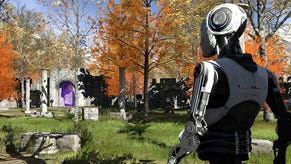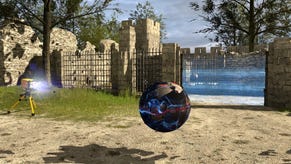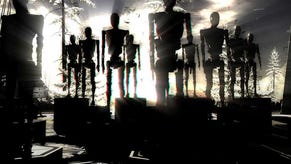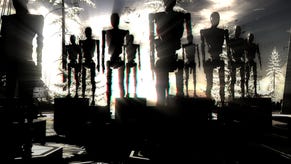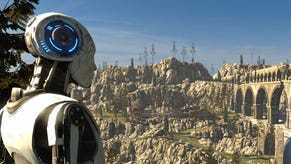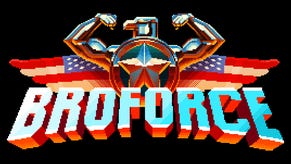The Talos Principle PlayStation 4 Review: Brain Food
Croteam's first-person-puzzle game finally escapes the PC, giving PS4 owners a chance to play the heir apparent to Portal.
This article first appeared on USgamer, a partner publication of VG247. Some content, such as this article, has been migrated to VG247 for posterity after USgamer's closure - but it has not been edited or further vetted by the VG247 team.
Eight years ago, Valve's Portal practically appeared out of nowhere and created a phenomenon with an all-too-short shelf life. At best, Portal taught the world great games could come in small packages, but since the sequel in 2011, its publishers have been much more content to pull in that fat Dota 2 cash than to actually make new games.
In the wake of Portal, I've played the few productions to put their own spin on its brand of first-person puzzles, but mostly walked away disappointed—even Portal creator Kim Swift's Quantum Conundrum ended up being a little dull. So I'm more than happy to say Croteam's The Talos Principle, newly released for the PlayStation 4, feels like the Portal 3 that never was. It may be lacking the humor and central mechanic of Valve's creation, but this collection of 100-plus environmental puzzles manages to hit the same heights as Portal, regardless of whether or not it serves as Talos' inspiration. (And if you're asking where I was when Talos originally released on PC close to a year ago, your guess is as good as mine.)
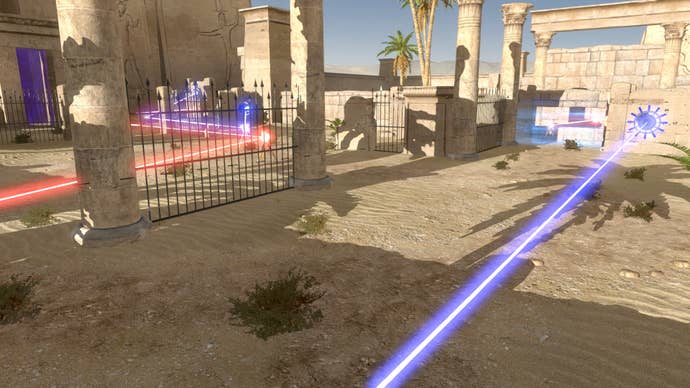
Like Portal, Talos runs the player—who doesn't know why they're there at the outset—through various experiments, each limited to a confined environment. The main goal of these challenges is extremely straightforward: Grab the tetromino glyph that lies somewhere within each one. Getting there, however, stands as the greatest challenge, and Talos gradually accelerates the complexity of getting from Point A to Point B. Sometimes, the sentry guns and floating mines pose the biggest problem; other times, your greatest foe can often be a switch you just can't figure out how to hit. Whatever the case, you'll do anything to nab that glyph if only hear the always satisfying THUNK it makes while crash landing into your inventory.
With over 100 puzzles to speak of, there's always the chance for repetition to emerge, but after a few hours of play, it should be clear Talos contains so many levels simply because the developers had so many ideas. What makes it work so well can be found in how thoroughly Talos explores a concept before moving onto the next one: Collecting certain glyphs gradually unlocks a new ability, and the opportunity to use said ability on formerly unexplored levels. So, by the time you've had your fill of disrupting force fields with mechanical devices, Talos lets you play around with controlling the direction of switch-powering red and blue laser beams via conductors. And, as your abilities grow and more puzzle types become available, Talos' levels soon start mixing the various kinds of challenges together in very smart ways, the most difficult of these being any of the ones that task you with recording a shadow image of yourself you then have to work alongside as it plays through its prescribed actions.
One of Talos' greatest strengths lies in how it gives the player a great deal of freedom in which puzzle to tackle next. Each of the three main hub worlds contains several hubs in which the puzzles themselves are housed, so if you're frustrated, there's always somewhere else to go. The real downside to this somewhat non-linear approach, though, is that Talos doesn't have the opportunity to teach through iterative design. At a few points, I'd find myself absolutely stumped on a puzzle, only to look up a solution on YouTube and be surprised by something I never thought an object in the world could actually do. My only other minor gripe is the fact that dying or painting yourself into a corner—something Talos always makes you aware of—entails heading all the way back to the beginning of a puzzle. While most of them can be finished in a minute or less if you know what you're doing, running through those first steps can be tedious if you find yourself stuck in the middle of a particularly tricky level.
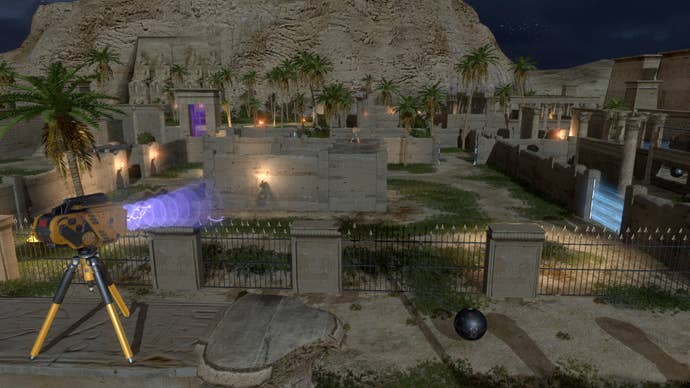
Talos' philosophical framing device has received plenty of praise since its PC release last year, but for me, it only acted as inspired window dressing for the host of puzzles within. There's some interesting bits packed within, to be sure: I particularly enjoyed the multiple-choice interactions about human consciousness with the computer terminals found throughout the world. But a lot of the information ends up being delivered in a way that doesn't mesh very well with the surrounding game. After pushing my spatial reasoning skills to the limit, the last thing my brain wants to do is read a log of text to help shed some light on the back story. If anything, this reaction of mine can be chalked up to how great Talos' puzzles are: even after digging through a bunch in a row, the last thing I wanted to do was not solve more.
Above all, I found Talos a worthwhile experience simply because it made me feel smart. It's an extremely satisfying experience to work a puzzle out, bit-by-bit, until you finally reach the glyph hiding at its creamy center—so much so that you'll immediately want to move on to the next one and feel that rush all over again. Even without the thoughtful, existentialist trappings, Talos would still be a fantastic game, but this central theme definitely makes Croteam's creation something special (even if I didn't always find it engaging). If you've had that first-person-puzzle itch since putting Portal 2 to bed over four years ago, The Talos Principle is here to help.
ConclusionIf you love and miss the Portal series, it's time to celebrate: The Talos Principle has all the first-person puzzles you've been craving, wrapped in an extremely thoughtful package. Don't be surprised if you feel legitimately smarter after reaching the end of its 100-plus puzzles.

